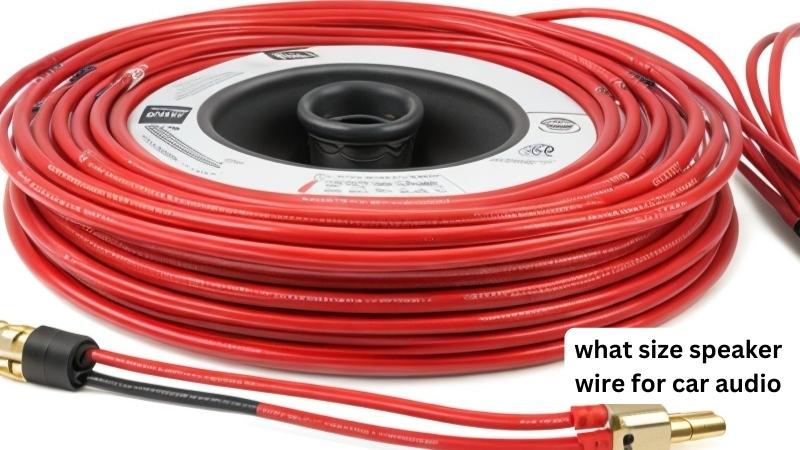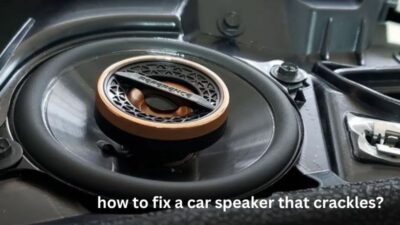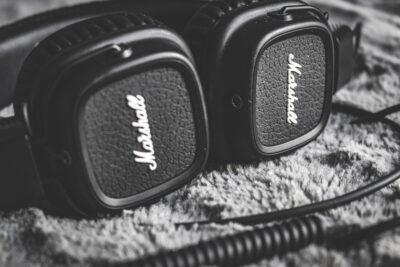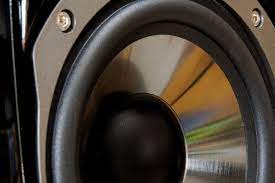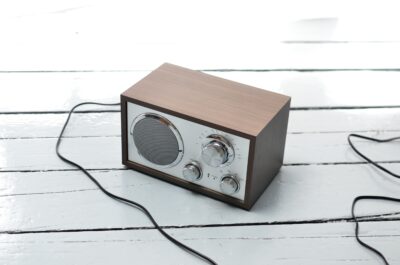what size speaker wire for car audio?
Today we discuss what size speaker wire for car audio. If you’re a car audio enthusiast, you know that the speaker wire size you choose can make or break your sound system. It’s like choosing the perfect outfit for a first date – you want to make sure you look and feel your best. In this article, we’ll dive into the nitty-gritty of speaker wire gauge and how it affects your car’s audio performance. So grab a coffee, sit back, and get ready to learn how to dress your car audio system for success.
Understanding Speaker Wire Sizes:
Speaker wire sizes are measured using a gauge system, where a lower gauge number indicates a thicker wire. Commonly used sizes for car audio systems range from 18 AWG (American Wire Gauge) to 12 AWG, with 12 AWG being thicker and capable of carrying more current.
Importance of Choosing the Right Speaker Wire Size:
Choosing the perfect speaker wire size is a critical step in achieving audio nirvana. Opting for a wire thickness that’s too puny can spell out power loss, degraded sound quality, and even inflict harm on your beloved audio equipment.
Conversely, going with a wire that’s thicker than a rhinoceros’ skin is like throwing money to the wind. It’s time to strike a harmonious balance that matches your setup’s needs and shuns unnecessary expenses. Get wired the right way and let the sound waves sing sweetly to your ears.
Factors to Consider for Speaker Wire Size:
Several factors come into play when determining the appropriate speaker wire size for your car audio system. Consider the following factors before making a decision:
1. Length of Wire Run:
The length of the wire run, i.e., the distance between the audio source or amplifier and the speakers, impacts the resistance in the wire. Longer wire runs result in higher resistance, potentially leading to power loss and diminished audio quality.
As wire resistance increases with length, thicker speaker wire is often required for longer runs to compensate for this effect.
2. Power Requirements of the Speakers:
Different speakers have varying power requirements. Higher-powered speakers demand thicker wire to ensure sufficient current flow and prevent overheating of the wire. It’s crucial to check the power specifications of your speakers to determine the appropriate wire gauge.
3. Impedance of the Speakers:
The measurement of speaker impedance quantified in ohms, has a direct impact on the power capacity of the speakers. Speakers with lower impedance necessitate thicker wires to endure the heightened current flow.
It is of utmost significance to take into account the impedance of your speakers while determining the size of the speaker wire.
Choosing the Right Speaker Wire Size:
Here are some guidelines to help you choose the appropriate speaker wire size for your car audio system:
1. Gauge Chart and Recommendations:
Consult a speaker wire gauge chart, which provides recommendations based on the power requirements and length of the wire run. These charts typically suggest the minimum wire gauge to use, considering the power and distance involved.
2. High-Powered Systems and Subwoofers:
If you have a high-powered car audio system or subwoofers, it’s generally recommended to use thicker speaker wire, such as 12 AWG, to handle the increased power requirements. The thicker wire helps minimize power loss and ensures optimal performance.
3. Upgrading Existing Speaker Wire:
If you’re upgrading your car audio system or replacing existing speaker wire, consider using thicker wire than what was previously installed. This allows for potential system upgrades in the future without the need to rewire.
Installation Tips for Speaker Wire:
When installing speaker wire in your car audio system, keep the following tips in mind:
- Use high-quality speaker wire with proper insulation to prevent signal interference.
- Ensure proper wire termination and secure connections to speakers and amplifiers.
- Route the wire away from sources of electrical interference, such as power cables or ignition systems.
- Avoid sharp bends or crimps in the wire that can degrade signal quality.
- Label or mark the wires during installation to make future maintenance or upgrades easier.
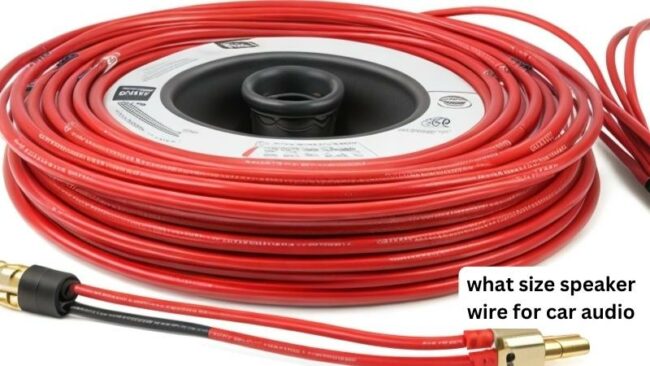
Faqs for what size speaker wire for car audio:
Using a slightly thicker gauge wire than recommended is generally acceptable and can provide additional headroom for power delivery. However, using excessively thick wire may be unnecessary and add unnecessary costs to the installation.
For shorter wire runs, thinner wire can be used as long as it meets the power requirements of your speakers. However, it’s important to ensure that the wire gauge is appropriate for the power demands and impedance of your speakers.
While it’s best to use a consistent wire gauge throughout your car audio system, it’s generally acceptable to use different gauges for specific applications, such as using thicker wire for subwoofers or amplifiers with higher power demands.
Using inadequate wire size can lead to power loss, reduced audio quality, and potential damage to the speakers or audio equipment. It’s important to ensure that the wire gauge can handle the power requirements of your system to avoid these issues.
If you’re unsure about selecting the appropriate speaker wire size or the installation process, it’s always a good idea to consult a professional car audio installer. They have the expertise and knowledge to help you make the right choices and ensure a proper installation.
Conclusion:
Choosing the right size speaker wire for your car audio system is essential to achieve optimal sound quality and performance. Factors such as wire run length, power requirements of the speakers, and speaker impedance should be considered when selecting the appropriate wire gauge. By following guidelines and using gauge charts, you can make informed decisions to ensure the best possible audio experience in your car.
